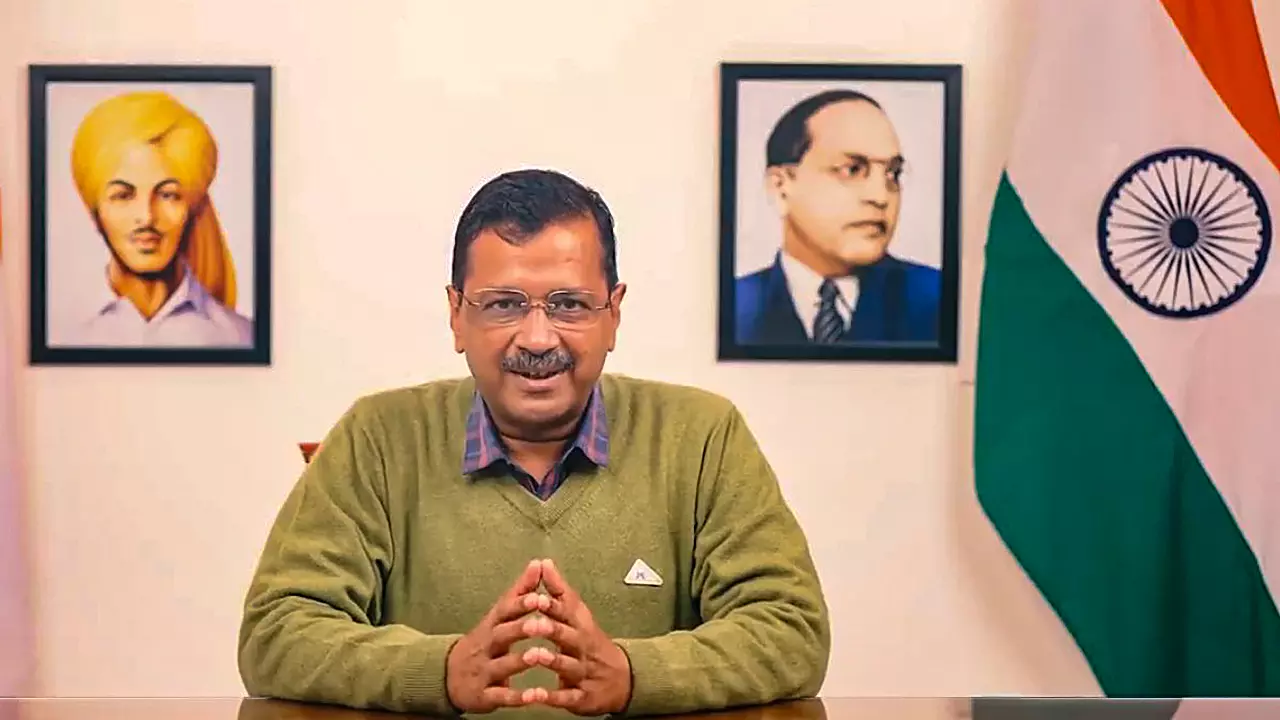Retweeting libelous content amounts to defamation: Delhi HC upholds summons against Kejriwal

Delhi Chief Minister Arvind Kejrwal. PTI
New Delhi, Feb 5 (PTI) The Delhi High Court on Monday upheld summons issued to Chief Minister Arvind Kejriwal as an accused in a criminal defamation case for retweeting an allegedly defamatory video circulated by YouTuber Dhruv Rathee in May 2018, saying that reposting alleged libelous content will attract defamation law.
The high court said a sense of responsibility has to be attached while retweeting content about which one does not have knowledge and added that retweeting of defamatory content must invite penal, civil as well as tort action if the person retweeting it does not attach a disclaimer.
“This court is of the view that rigours of Section 499 (defamation) of IPC will be attracted prima facie in case a person retweets/ reposts the alleged defamatory remarks or content, for the purpose of the general public to see, appreciate and believe,” Justice Swarana Kanta Sharma said.
The high court, while refusing to quash the trial court’s 2019 order summoning Kejriwal, said when a public figure tweets a defamatory post, the ramifications extend far beyond a mere whisper in someone's ears.
“In social media, where information travels at lightning speed and has the potential to reach a global audience, the act of tweeting transforms the communication into a form of public publication. The audience, in this context, is not restricted to those physically present or within immediate earshot but encompasses the vast and diverse online community.
“In the digital age, the boundaries of ‘publication’ have expanded, and the implications of defamation are heightened due to the potential of widespread dissemination,” it said.
It added that unlike physical injury, which may be localised and limited in scope, virtual injury can have far-reaching and long-lasting effects.
The court said the law with regard to posting of a defamatory content by way of re-tweeting or reposting is still not settled and is evolving.
It said if the act of retweeting or reposting is allowed to be misused as it is still considered to be a vacant grey area of law, it will encourage people with ill intentions to misuse this vacant field of law and conveniently take a plea that they had merely retweeted a content.
“In addressing a democratic community, it is crucial to emphasise that freedom of speech, while a fundamental right, does not grant individuals the licence to inflict harm or tarnish the reputation of others,” it said.
In rendering equal protection, the court said it must balance the right of free speech with the need to prevent unjust harm to reputation and injurious falsehood of a statement will definitely invite defamation and loss of reputation.
At times, it is difficult to erase the reputational injury from public memory, as the tweets may be deleted but perceptions are difficult to be deleted from the minds of the community, it said.
The court said the use of cyberspace has seen rapid development and the users, for the purpose of posting their content even by way of retweeting, should remain conscious of a keen sense of danger in this new technological method of spreading information.
“The concept of publication, traditionally associated with printed materials, must be re-examined in the context of virtual platforms where information can reach a vast audience in seconds. Moreover, the legal system should be attuned to the dynamics of social media influence,” it said.
The court said when a person makes a smart move to dodge law, the courts and laws have to be smarter to catch that smartness and added that a person retweeting a defamatory content cannot wriggle out of his responsibility by merely contending that it was a retweet and not the original tweet.
“This court holds that retweeting or reposting defamatory content, without any disclaimer as to whether the person so retweeting agrees or disagrees or has verified the content so posted or not, and as to whether he projected to the world at large, who care to follow him, that he believes the content to be true so shared, a person would be republishing the original defamatory content which has the potential of lowering the moral or intellectual character or credit of a person,” it said.
The court said Kejriwal, being a Chief Minister, necessitates an acknowledgment of the inherent sense of responsibility that comes with such a significant political role.
“As a leader with political standing and maturity, he is presumed to be aware of the potential impact of his actions, including retweets, on the public perception.
“When a public figure, particularly one with a political standing, tweets or retweets a defamatory post, the stakes and repercussions escalate given the broader implications on society. The audience, therefore, becomes the citizenry at large, whose opinions and decisions may be influenced by the information they consume, including defamatory statements published on social media,” it said.
Where millions of people follow Kejriwal on social media platforms, anything which is posted by him is for public notice, the court said.
The chief minister had said the trial court failed to appreciate that his tweet was not intended or likely to harm complainant Vikas Sankrityayan.
The plea said the trial court erred in not providing any reasons for issuing the summons and the orders were 'ex-facie' devoid of judicial application of mind.
Sankrityayan claimed the YouTube video with the title 'BJP IT Cell Part II' was circulated by Rathee, who lives in Germany, "wherein a number of false and defamatory allegations were made". PTI
